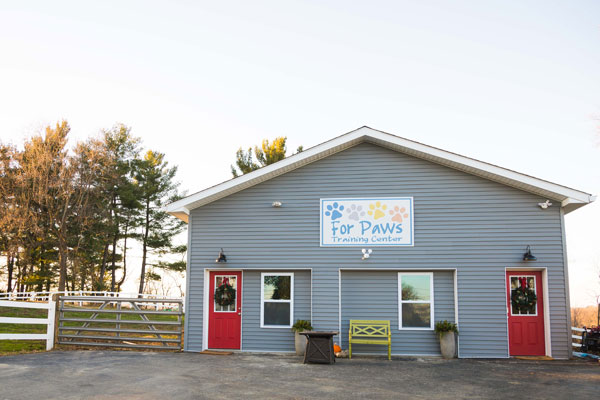Mastering Dog Training in Northern Kentucky: Expert Tips and Tricks
Welcome to the world of dog training in Northern Kentucky! Whether you’re a first-time pet owner or dog enthusiast, mastering the art of training your dog can be challenging and rewarding. But fear not! You can turn your canine companion into a well-behaved and obedient family member with the right guidance and patience. In this blog, we’ll explore expert tips and tricks from seasoned trainers to help you easily navigate the dog training world.
Understanding Your Dog’s Behavior is Important
Before diving into training techniques, it’s essential to understand your dog’s behavior. Dogs are intelligent creatures with their unique personalities and instincts. Observing your dog’s body language and cues can give you valuable insights into their emotions and motivations. Effective training begins with building a strong bond based on trust and respect.
To ensure your dog training goes well, creating a happy atmosphere is important. Find a calm place without too many distractions, like a big backyard or a quiet room indoors. Keep your training sessions short and fun; work on one thing at a time. When your dog does what you want, treat them, praise them, or play with their favorite toy. This helps them understand what they’re doing right and makes them want to learn more. By keeping things positive and enjoyable, your dog will be excited to learn, and you’ll have a great time training together!
Basic Training Commands:
- Start with the basics: Begin your dog’s training journey by introducing fundamental commands such as “sit,” “stay,” “come,” and “heel.”
- Foundation for advanced training: These basic commands serve as the building blocks for future complex behaviors and obedience training.
- Break it down: Break each command into simple steps your dog can understand. For example, for “sit,” gently press down on their hindquarters while saying the command.
- Patience is essential: Learning takes time, especially for your furry friend. Be patient and provide positive reinforcement as they progress.
- Repeat, repeat, repeat: Repetition is crucial for your dog to internalize commands. Practice in short, focused training sessions regularly to help your dog master each command effectively.
- Enjoy the journey: Training your dog is an opportunity to bond and have fun together. Cherish the moments of growth and learning with your canine companion.
Socialization, Consistency, and Patience:
Socialization is crucial for a well-behaved dog. Expose your dog to various environments, people, and other animals from a young age to help them feel comfortable and confident in different situations. Gradually introduce your dog to new experiences, monitoring their reactions and providing reassurance when needed.
Consistency and patience are the main components of successful dog training in Northern Kentucky. Rome was built a day ago, and neither is a well-trained dog. Be patient with your dog as they learn new behaviors, and remain consistent in your training efforts. Remember, every small victory is a step in the right direction toward a well-behaved and obedient companion.
Every dog is unique, and some may exhibit behavioral issues that require special attention. Addressing these issues early on is crucial for a harmonious relationship with your dog, whether it’s excessive barking, aggression, or separation anxiety. Consult a professional and expert dog trainer or behaviorist for personalized guidance and support.
Training Tools and Techniques:
- Customization: Understand that each dog is unique, so tailor your training methods to suit the dog’s personality, temperament, and learning style.
- Experimentation: Try various techniques to see what works best for your dog. This might include positive reinforcement methods like clicker training or reward-based training.
- Positive Reinforcement: Emphasize positive reinforcement techniques, which involve rewarding desired behaviors with treats, praise, or toys. This creates a positive association and encourages the dog to repeat the behavior.
- Avoid Harsh Methods: Steer clear of harsh punishment or dominance-based methods. These approaches can be ineffective and detrimental to your dog’s well-being, potentially causing fear or aggression.
- Building Trust: Build trust and a strong bond with your dog through patience, consistency, and understanding. Training should be a positive experience for you and your furry friend, strengthening your relationship.
Seeking Professional Help:
When faced with challenges in your dog training in Northern Kentucky, seeking professional assistance is prudent. Trained professionals possess knowledge, extensive experience, and specialized resources to tackle many training issues effectively. Their expertise enables them to devise customized training programs tailored to your dog’s requirements.
You can confidently navigate obstacles and attain your desired training objectives by availing yourself of their guidance and support. Professional dog trainers offer invaluable insights and techniques to enhance your dog’s learning experience and behavioral development.
Therefore, should you encounter difficulties or feel overwhelmed in your training endeavors, feel free to enlist the services of a qualified professional. Their intervention can be instrumental in fostering a harmonious relationship between you and your companion while fostering a conducive environment for successful training outcomes.
Conclusion:
Mastering dog training in Northern Kentucky is a journey filled with challenges and rewards. By understanding your dog’s behavior, creating a positive training environment, and using effective training techniques, you can build a strong bond and enjoy a lifetime of happiness together. Remember, patience, consistency, and a little love go a long way in shaping a well-behaved and obedient dog. So, roll up your sleeves and embark on this exciting adventure with your furry friend by your side!

